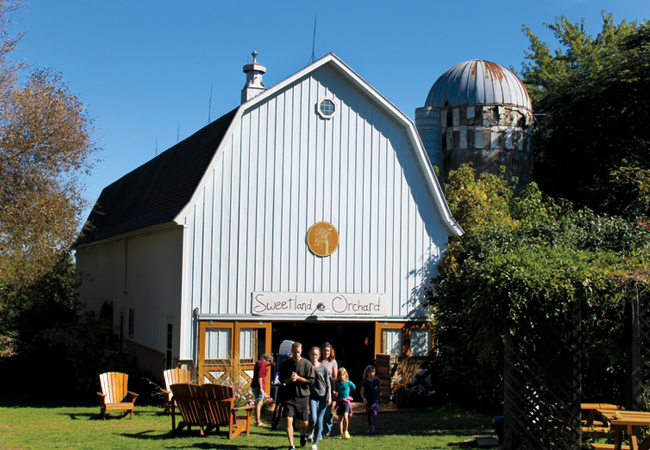
Fall in the Midwest demands a trip to an orchard bursting with warm colors and crisp fruits. We recently spent an afternoon at Sweetland Orchard in Webster, Minnesota, where the fruit is just the beginning of the experience.
Sweetland is run by Mike and Gretchen Perbix, who took over the orchard in 2010. You might know them by their pink-tinged Cherry Rhubarb Scrumpy cider. Back in 2010, the Perbix family tended about 1,000 apple trees on their 5-acre farm. In the six years since, their business has evolved from an orchard selling apples at farmers markets and grocery stores, to a buzzing cider operation pumping out 15,000 gallons of the stuff each year.
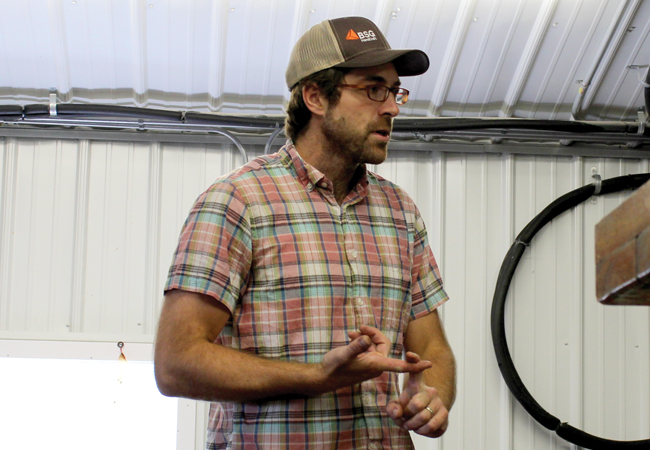
Mike (pictured above) gives tours of the cidery, a tiny building packed with a cider press, a bottling line, other equipment, and kegs (and a baker’s rack or two of cooling cider doughnuts). As he explains the way the press works, Mike is humble about the process, giving his wife Gretchen and some important cheerleaders (namely Matty O’Reilly of Republic and the folks at Dogwood Coffee) a lot of the credit for the ciders’ success. The Perbix family started making hard cider in 2012, with a conservative 55-gallon batch. Now that their ciders are in high demand, they’ve started sourcing apples from two other farms in the Midwest to keep up production.
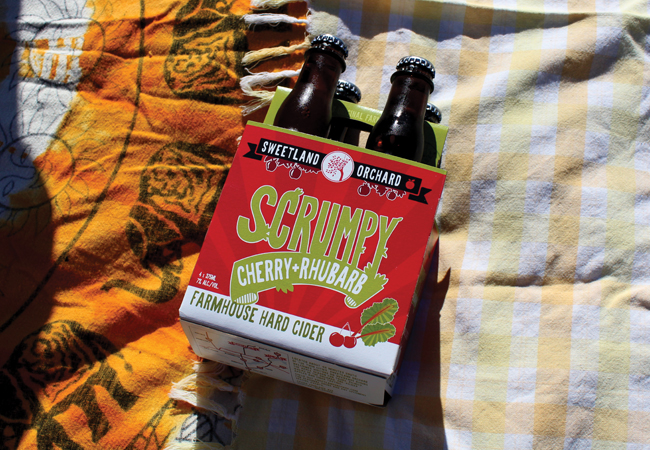
Each cider begins with grinding up a bunch of apples which then get pressed for juice. Then the juice and yeasts are combined and left to ferment for about two weeks before being racked (stored in jugs) until they taste just right. Mike likens the process to winemaking and is constantly experimenting with new combinations. These experiments are called Roundabouts and are labeled by batch number. We took a turn at the on-site tasting bar and tried four or five of these experiments, including the intriguing batch #10, an earthy, slightly leathery cider made with cascara (the dried husks of coffee beans).
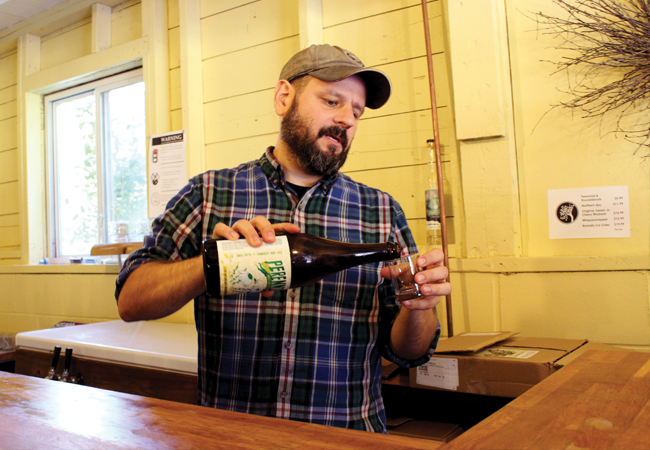
The tasting-room bartender, Sam Falbo (pictured above), explained the intricacies of each cider. He paired Sweetland’s super-dry Northern Spy and a lovely sheep’s milk cheese called Friesago, from Shepherd’s Way Farms. Northern Spy is made exclusively from Northern Spy apples, unlike the orchard’s scrumpy ciders, which are blends of a few apple varieties.
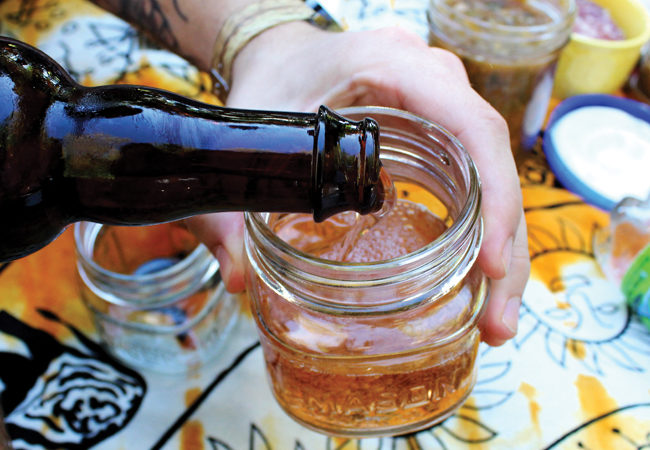
Both Northern Spy and the Friesago cheese are sold at the orchard. You can almost always buy a bottle of anything you try at Sweetland’s tasting bar. And if your favorite cider is sold out? Have no fear! You might catch Mike quickly labeling a few bottles to fill the empty space in the cooler. A variety of apples and fresh baked goods are also sold at the orchard.
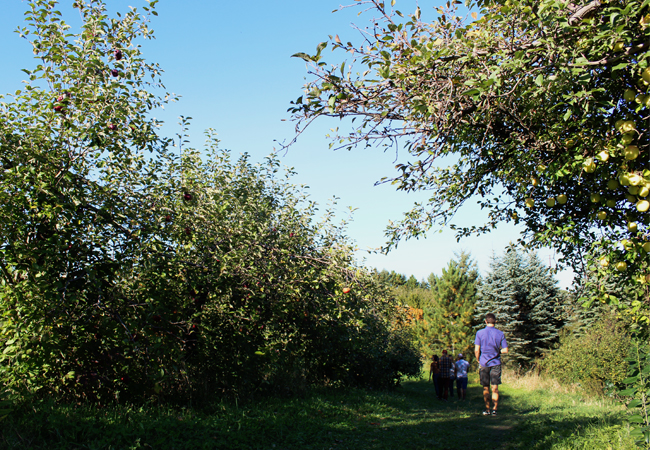
Families, take note: Sweetland isn’t a place where your kids can go on hayrides or scamper through a corn maze. Additionally, the orchard is under renovation this year. The Perbix family are in the process of expanding their arsenal of apple trees from 1,000 to 5,000. To make room for all of the new stock, they are trellising the trees, much in the way a wine maker prunes grape vines to manage their growth. Because of this development, visitors cannot pick their own apples for the time being. However, lazy orchard strolls and impromptu picnics are highly encouraged.
Sweetland Orchard, at 26205 Fairlawn Ave, Webster, MN, is open for tours and tastings on Saturdays and Sundays, 10 a.m. to 6 p.m., through October 30. They can be reached at 651.252.4337.

Re the ground-up apples, I believe the term is pomace, not pumice (which is what you use to sand calluses off your feet…).
Sounds like a cool place.
From the copy editor: Pumice is definitely not mashed up apples, but pomace is the solids that are left after apples (or grapes or olives) are pressed, so to be entirely accurate, I deleted the word, which was used to describe the crushed apples before they were pressed.
Either Way!
Let’s mash those babies up!!!
$Bil